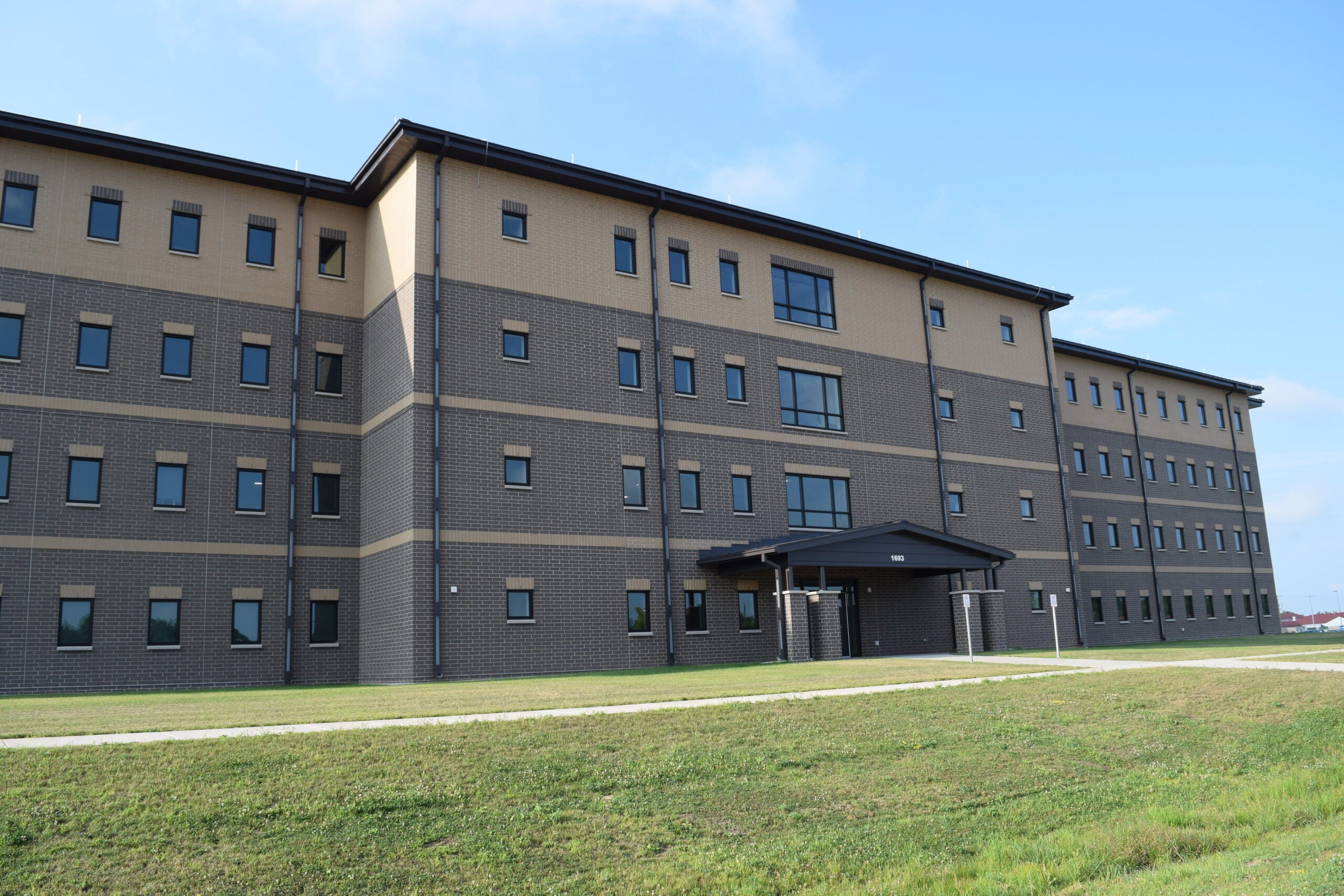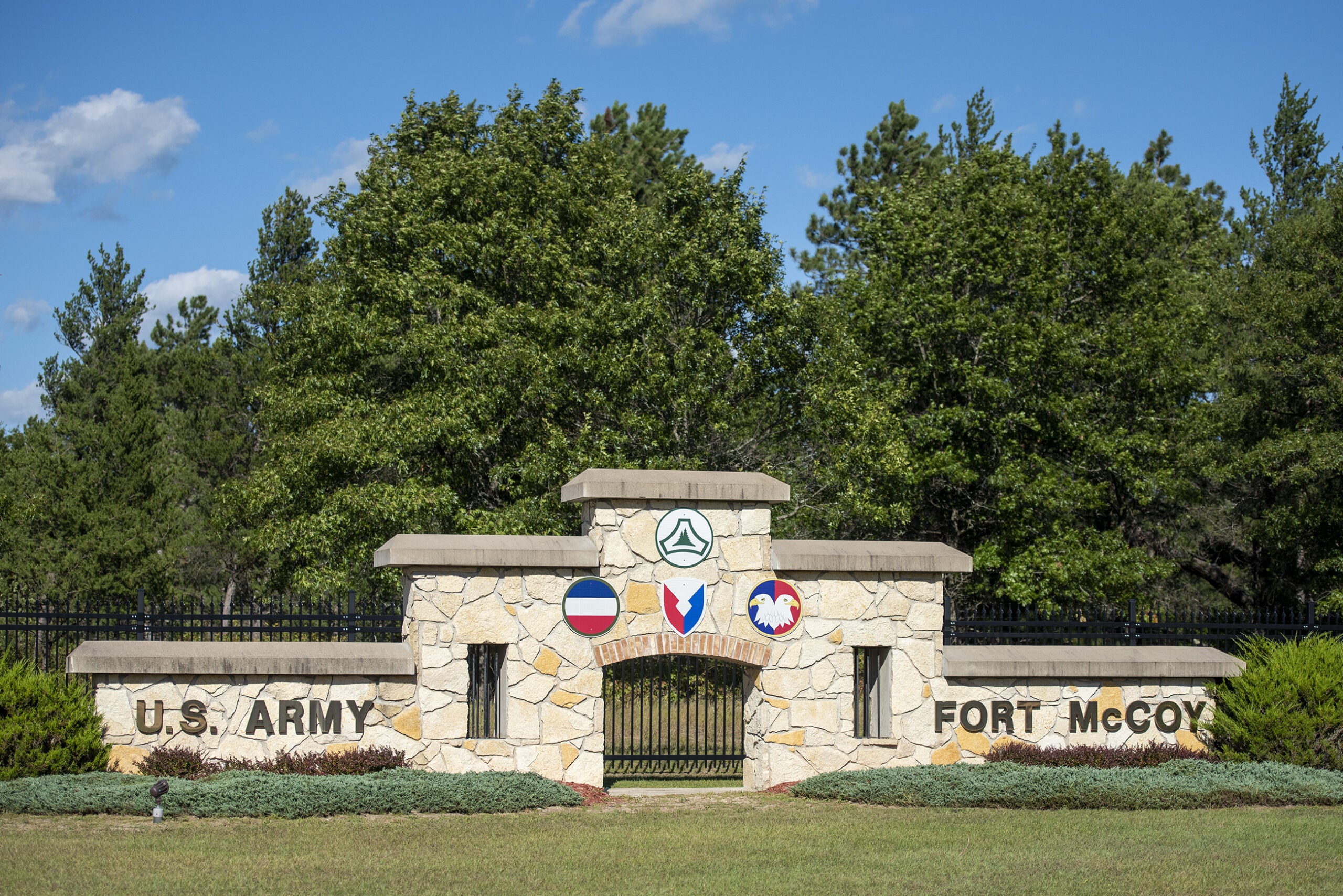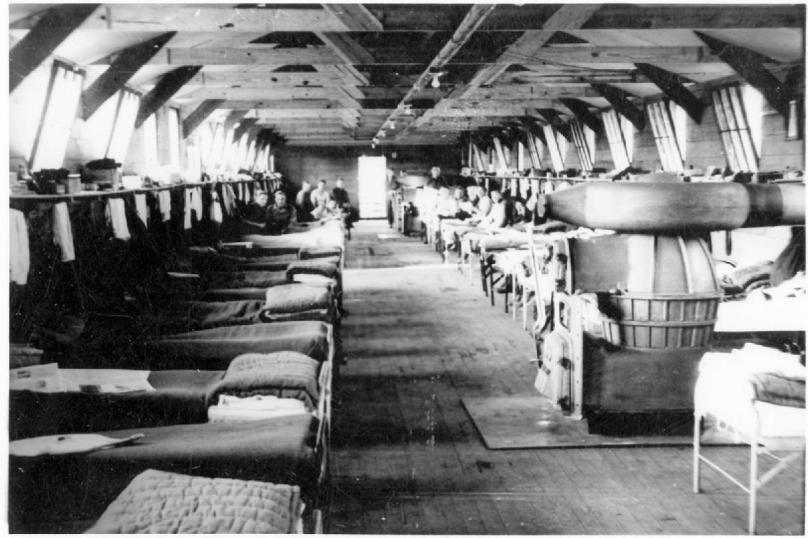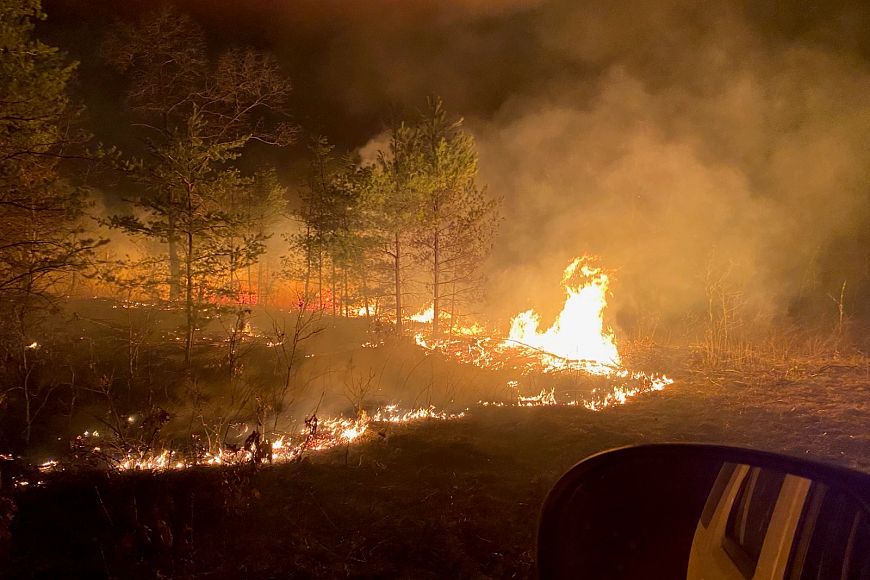Fort McCoy in western Wisconsin has a long history as a U.S. military installation for training and mobilizing troops. Much of the base was constructed during World War II, including the more than 200 wood barracks that are still used today to house soldiers who come for training year round.
Now, the military base is in the process of building a new campus that will house 1,600 troops and 320 officers.
Two new four-story barracks buildings have been completed so far, with construction on a brigade headquarters building projected to finish this December. In total, the campus is expected to include four barracks, two officer barracks and three headquarters buildings.
News with a little more humanity
WPR’s “Wisconsin Today” newsletter keeps you connected to the state you love without feeling overwhelmed. No paywall. No agenda. No corporate filter.
“This will be one of the first areas we’ll stand up if we do end up having to mobilize soldiers,” Liane Haun, Fort McCoy’s director of public works, said during a tour. “When they come in and they don’t have vehicles to get themselves around, they’re within walking distance of those community facilities.”
Democratic U.S. Sen. Tammy Baldwin visited the base Thursday to see the new facilities. She helped secure $69 million in federal funding this year to pay for two of the new buildings, which the base is expected to break ground on in the coming weeks. She said the new facilities were needed because of a rise in maintenance problems.
“They just weren’t keeping up with the times,” Baldwin said. “There were all sorts of failures, including water damage, mold and other issues. I am so proud of the folks who stand up to serve our nation in our volunteer services and want them to have satisfactory barracks and certainly training equipment.”
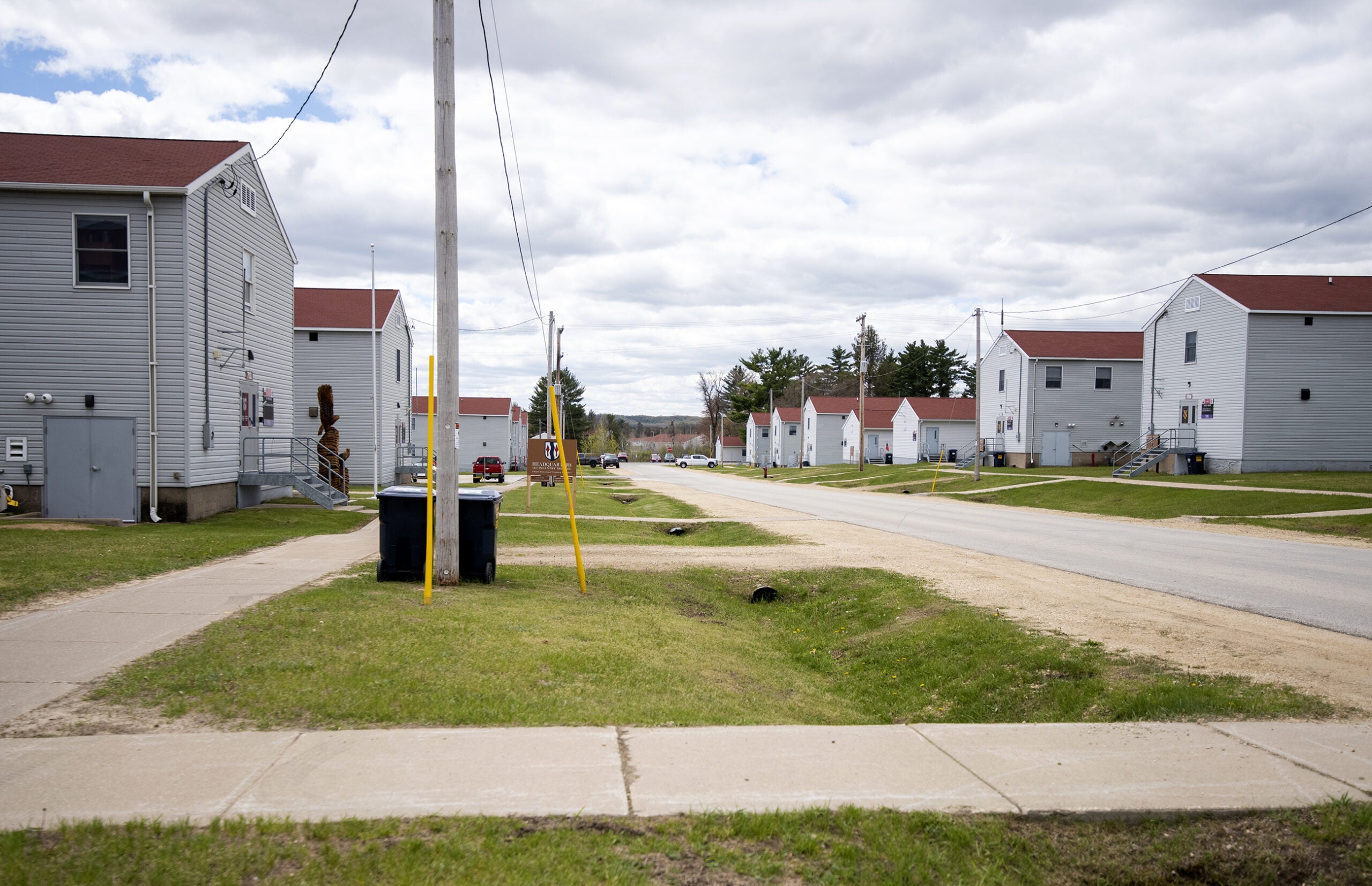
But Fort McCoy isn’t getting rid of the WWII barracks that have housed soldiers, refugees from Cuba in 1980 and Afghan refugees in 2021.
Haun said the base needs to have bed spaces for 10,000 soldiers at any given time.
“In order to do that, we need to sustain our existing infrastructure, because we know that the millions of dollars it takes to build just one building is probably not going to be there in the long term,” she said.
She said the base has worked to save around 95 percent of the wooden barracks buildings, even contracting a company to move four of the structures to different locations instead of demolishing them for the new housing complex.
Haun said the wood of the buildings is still in strong condition despite being built in the 1940s.
“The soldiers actually say that they enjoy having the smaller footprint of the facilities,” Haun said. “If we can ‘permanetize’ them, as we’ve coined the term, putting a foundation underneath it, putting on a better roof system, putting a better exterior siding on it, and basically making sure that we don’t have water infiltration that could cause rot in the future. That’s an easy, quick win for us.”
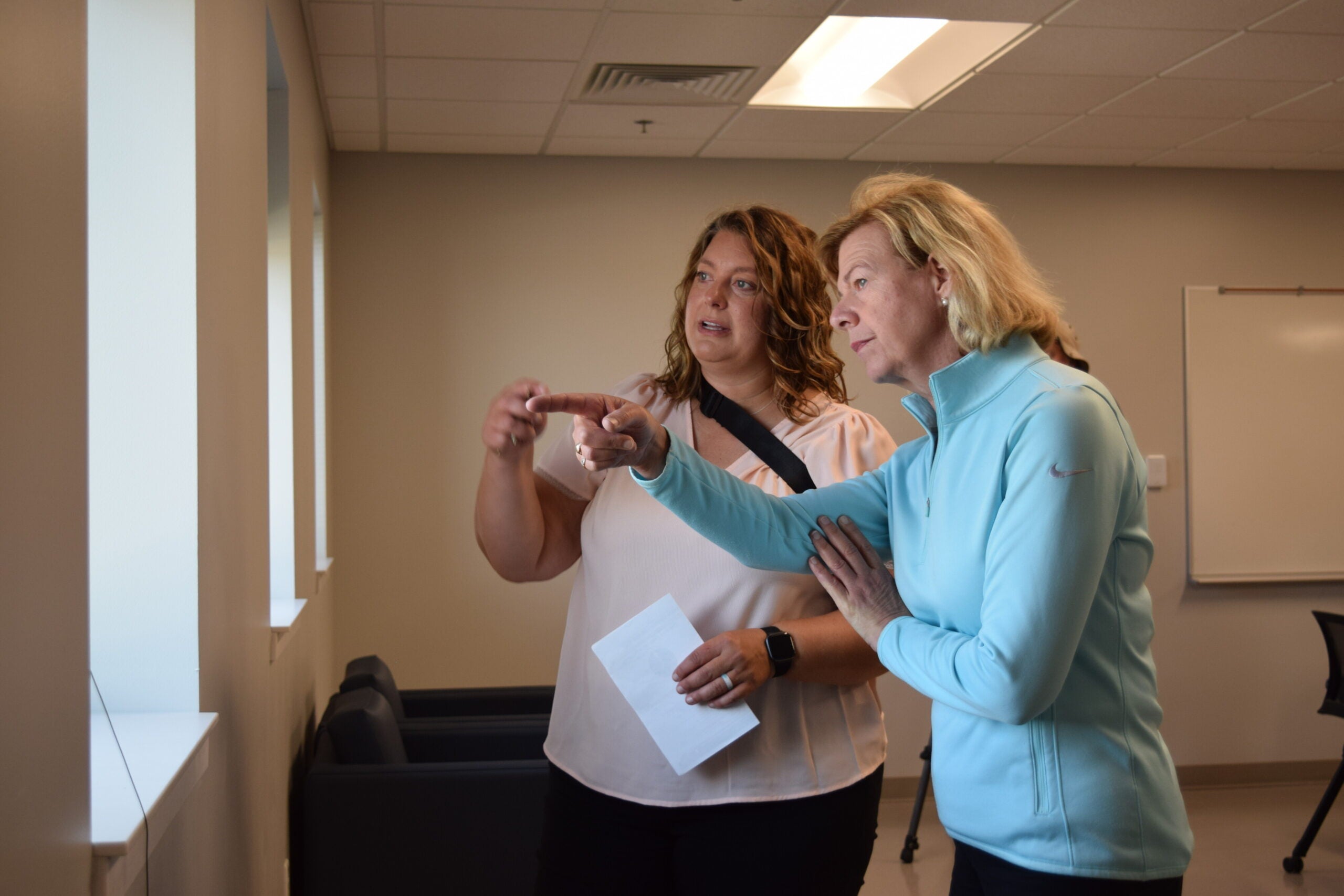
Baldwin toured one of the original WWII era barracks during her visit and observed soldiers using a virtual firing range in Fort McCoy’s simulation buildings that were built in 2020.
Wisconsin Public Radio asked the Democratic senator about the ongoing response by federal officials to revelations that a doctor at the Tomah VA Medical Center improperly dismissed some veterans’ neurological disorders, causing their care or benefits to be reduced.
When asked whether the VA’s response to veterans has been adequate, Baldwin said she largely hears positive feedback about medical care at the Tomah VA. She pointed to the fact that the provider, Dr. Mary Jo Laska, has been fired and veterans have the opportunity to be reevaluated.
Wisconsin Public Radio, © Copyright 2025, Board of Regents of the University of Wisconsin System and Wisconsin Educational Communications Board.

